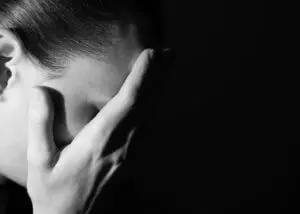Addictive Behaviors
Recognizing your addictive behaviors while you’re in treatment is necessary for long-lasting recovery after treatment. When you’re going through treatment, you’ll focus on understanding your triggers and coping mechanisms. This is crucial because noticing specific behaviors that lead towards drinking or using drugs will help guide you in your recovery. Without understanding these behaviors, you can be on the road to relapse without even seeing it coming.
Noticing Addictive Behaviors to Avoid Relapse
 Relapse happens days, weeks or months before you even pick up the first drink or drug to get drunk or high. The only way to stop relapse from happening is by noticing your behaviors when they begin to manifest. Many of your past behaviors are what lead to your drinking or using in the first place. Some of the most common behaviors that lead a person back to drugs or alcohol can include:
Relapse happens days, weeks or months before you even pick up the first drink or drug to get drunk or high. The only way to stop relapse from happening is by noticing your behaviors when they begin to manifest. Many of your past behaviors are what lead to your drinking or using in the first place. Some of the most common behaviors that lead a person back to drugs or alcohol can include:
- Lying
- Manipulating
- Isolating
- Irritability
While you’re in treatment, you’re going to go through group therapy, which will show you the value of a support group. Often times, you don’t even know that you’re reverting back to old behaviors due to a lack of self-awareness. This is why 1st Step Behavioral Health is going to encourage you to hang around people who will help you. Your support system should include people who tell you what you need to hear rather than what you want to hear.
How Mental Illness Plays Into Addictive Behaviors
Co-occurring disorders play a major role in going back to old behaviors. This is the most common when a person isn’t following up and managing his or her mental illness. For example, depression can make you feel alone, which will encourage you to begin isolating. This can also happen for those who struggle with anxiety. Isolation is one of the beginning steps towards relapse.
1st Step Behavioral Health offers dual diagnosis treatment that will teach you how to manage your symptoms. You’ll begin to understand your mental illness and how to overcome the symptoms when they get dangerous. Additionally, you’ll learn the importance of getting out of your comfort zone with very simple, manageable steps. Each one of these techniques will help you avoid relapse in the future.
Addictive Behaviors and Switching Addictions
The potential to switch addictions is also a possibility post treatment. 1st Step will help you avoid replacing one addiction with another. Many people believe that their addiction is only to one specific drug or alcohol, which is false. Not only are you at risk of developing an addiction to a different substance, but you can also develop an addiction to a feeling or action.
Those who have an addiction often need to fill a void. Many people get sober and immediately try to get into a relationship because as a way of filling that void. Still, others people may start overeating, gambling or shopping in ways that follow the pattern of addiction. 1st Step Behavioral Health will teach you how to spot these behaviors before they take control of your new life.
1st Step Behavioral Health is passionate about seeing clients succeed in their new lives of recovery. Find out more about available programs, including an extended-care program by calling (855) 425-4846 today.
Take the First Step Today
We can help you get better. Contact us today to find out which program might be right for you, or to begin the process of arranging for treatment.
